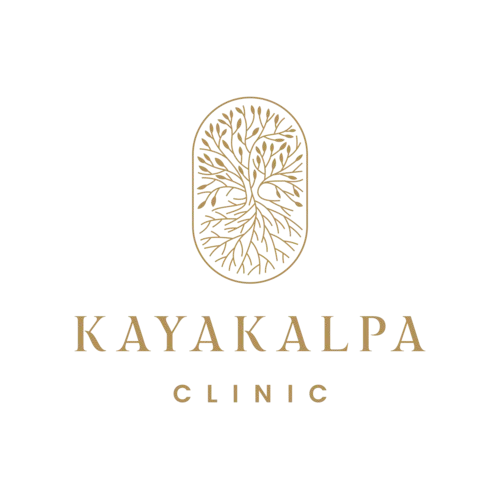- Home .
- Lifestyle Medicine .
- Blog Details
Blog Details
Protein Powders: Health Boost or Hidden Sugar Trap?
By Dr. Shruthi Thennati | Kayakalpa Clinic, Vadodara
“Wait wait… what are you doing?”
“I’m having my daily intake of protein — one scoop a day!”
“Hold on,” says the doctor, “it’s not about one scoop. It’s about what your body really needs… and whether that powder is even real protein or just sweetened marketing.”
This small exchange sums up one of the biggest modern fitness confusions — protein powder ≠ automatically healthy. Let’s decode it.
Why Protein Matters
Protein is essential for:
- Building and repairing muscles
- Supporting enzymes, hormones, and immune function
- Keeping you full and managing weight
- Maintaining skin, hair, and nail health
But here’s the key: your body’s protein needs vary based on your weight, activity level, and goals.
👉 Most adults need about 0.8–1.2 grams of protein per kg of body weight per day.
So if you weigh 60 kg, that’s around 50–70 grams daily — which can often be met through regular food if your diet is balanced.
The Protein Powder Trap
Many people assume all protein supplements are healthy. Unfortunately, not all powders are created equal.
Here’s what to watch out for on the label:
- High sugar or artificial sweeteners: Many “chocolate” or “cookies and cream” variants contain more sugar than protein.
- Low protein percentage: Some brands have only 40–50% actual protein.
- Additives and thickeners: Unnecessary fillers like maltodextrin or hydrogenated oils.
- Fake claims: “Natural” or “organic” doesn’t always mean pure.
Real vs. Synthetic Nutrition
While protein shakes can help when you have higher requirements — like during muscle gain, recovery, or limited food intake — whole foods are still the gold standard.
✅ Better natural sources of protein:
- Eggs
- Lentils & beans
- Paneer, curd, and milk
- Fish & chicken
- Nuts & seeds
These foods come with essential nutrients, fiber, and enzymes that powders can’t replace.
The Right Way to Use Protein Powder
If you do use one, make sure to:
- Choose a trusted brand with 70–90% protein concentration
- Avoid added sugar, flavors, and unnecessary fillers
- Combine with a balanced diet and proper hydration
- Consult your doctor or nutrition specialist — especially if you have kidney, liver, or hormonal disorders
At Kayakalpa Clinic, Vadodara, we assess your metabolic health, muscle composition (via InBody 970 scan), and nutritional status to recommend what your body truly needs — not what’s trending online.
Protein powders can support your nutrition — but they’re not magic. Without proper guidance, they can do more harm than good.
Remember:
It’s not about one scoop — it’s about smart nutrition tailored to your body.
For expert advice on nutrition, metabolism, and lifestyle health, visit Kayakalpa Clinic, where science meets sustainable wellness.
🔗 Book Your Visit Today
Visit: 🌐 www.kayakalpa.in
📱 Call/WhatsApp: [+91 90232 68462]
📍 Google Maps: “Kayakalpa Clinic, Old Padra Road”

